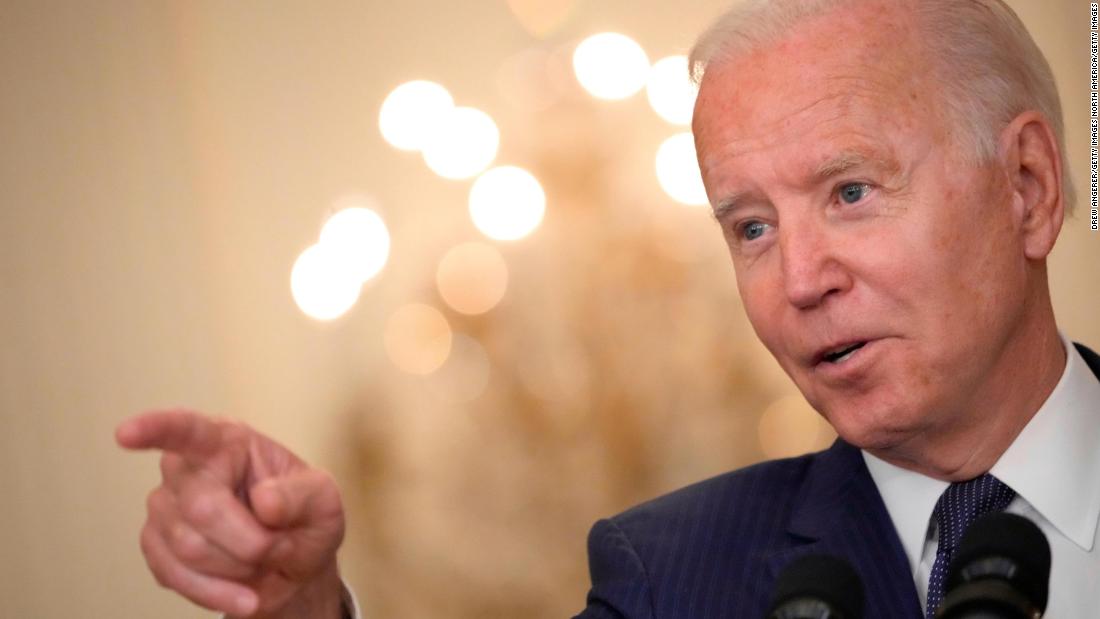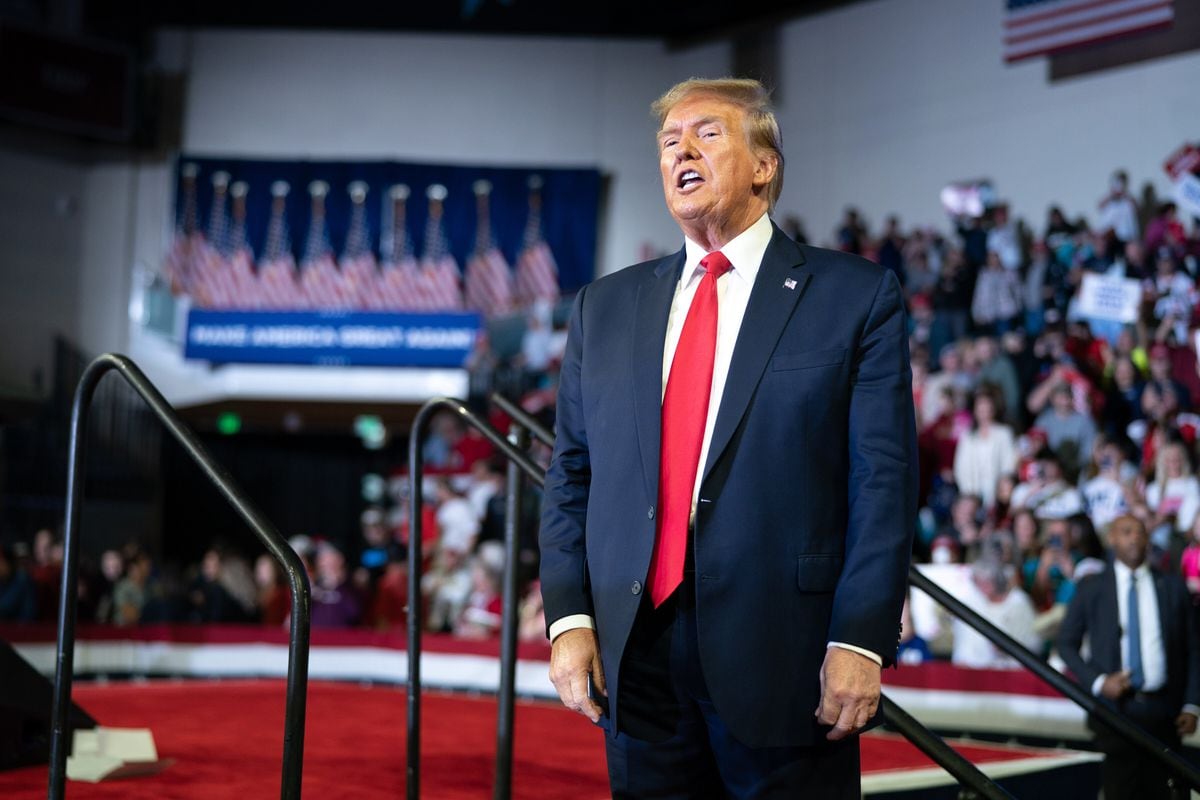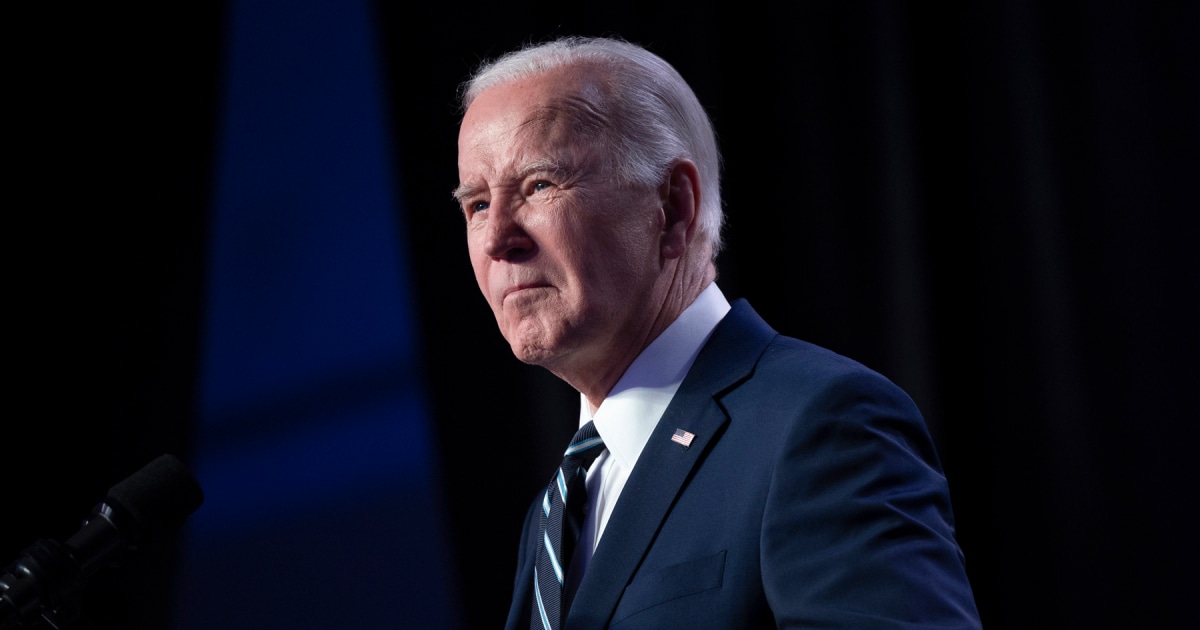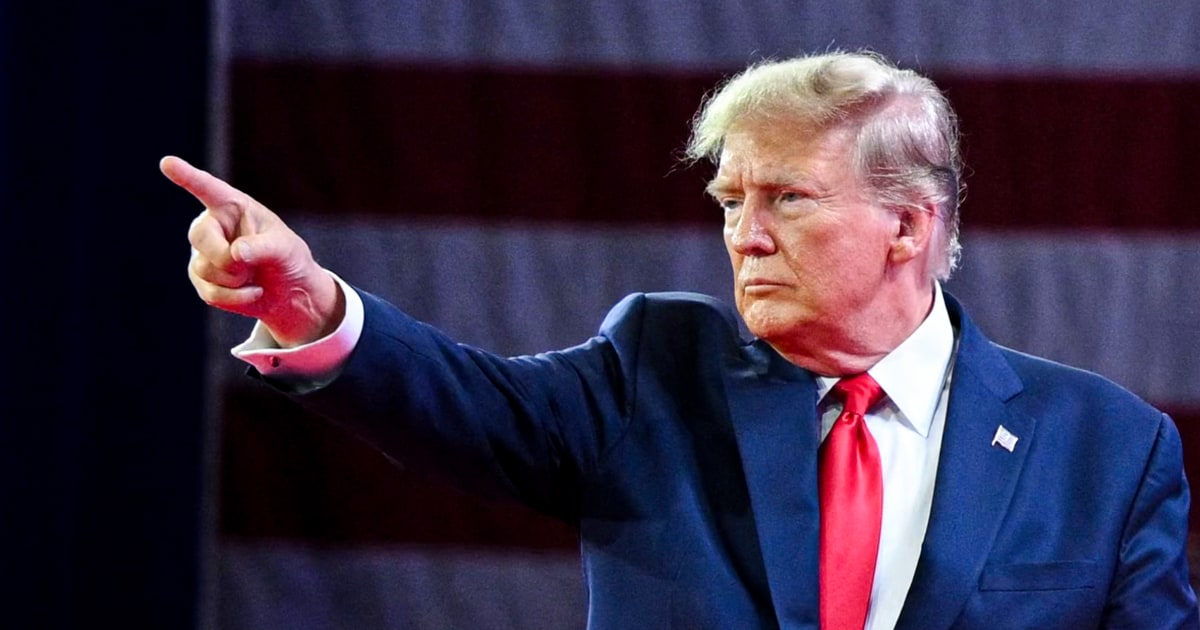Biden: I haven't gotten the Republicans involved 2:13
Washington (CNN) --
When President Joe Biden casually said in a voting rights speech last week that he had been "arrested" in the context of the civil rights movement, even suggesting it had happened more than once , was a classic false statement by Biden: an anecdote about his past for which there is no evidence, prompted by a decision to improvise rather than stick to a prepared text, raising easily avoidable questions about his honesty.
Biden's imaginary or embellished anecdotes about his own history were the most memorable untruths of his first year in office.
They were not, however, the only ones.
The president also made multiple false claims on important political issues, including three topics that took up much of his time: the US withdrawal from Afghanistan, the economy, and the covid-19 pandemic.
And Biden erred numerous times by improvising on a wide range of facts and figures, sometimes in ways that seemed inadvertent, but other times in ways that helped him make a political point.
Unlike his exceptionally dishonest predecessor, Biden did not bury fact-checkers in a daily onslaught of falsehoods.
Biden never came close to making a dozen false claims in a single speech, let alone five dozen false claims in a single speech, as Trump once did.
OPINION |
One year after the assault on the Capitol: Trump's lies were enough
In fact, the total number of false claims by Biden so far is in the dozens, while Trump made more than 1,000 total false claims in his first year and more than 3,000 the following year.
advertising
So Biden is not Trump.
That said, dozens of false claims by the President of the United States is no mean feat.
And considering that Biden added scores of other claims that were misleading or lacked significant context, he provided more than enough material to keep fact-checkers on their toes.
Here's a rundown of the first year of Biden's inaccuracies.
The White House declined to comment for this article, but has already commented for individual fact checks on some of the false claims that we comment on below.
False statements about your own past
Biden made a number of claims about his own past that were simply not true.
It was these easy-to-understand, hard-to-defend personal falsehoods, rather than his false claims about complex political issues or obscure statistics, which supporters could more easily dismiss as bona fide errors, that provided the best ammunition for detractors seeking to portray him. as misleading.
And like some of Trump's stories about his past, Biden's tended to be peripheral to his message.
In other words, he was damaging his reputation for little gain.
Speaking to technical college students near a truck in November, Biden said, "I used to drive a tractor-trailer," albeit only for "part of a summer." This was similar to something he had said at a Mack Trucks facility in July, when he said, "I used to drive an 18-wheeler," adding, "I got to." There is no evidence that Biden ever drove a big truck; The White House previously told CNN that he once had a job driving a school bus (not an 18-wheeler, not a trailer) and that, as a senator in 1973, he spent a night in a cargo truck (not driving it). ).
Biden repeatedly told a story about an alleged conversation during his vice presidency with an old friend, an Amtrak train conductor, that simply couldn't happen because the man was dead at the time.
He repeatedly boasted of having traveled "17,000 miles" (more than 27,000 kilometers) with Chinese President Xi Jinping, a figure that is nowhere near the real thing.
Biden diverted attention from his voting rights message with the previously unsubstantiated claim that he was arrested during a civil rights protest;
in some of the earlier versions of the story, he had merely claimed that a police officer had driven him home after a protest.
(There is evidence that Biden participated in some civil rights activities in his youth, but there is no record of any arrests.)
And Biden told two different inaccurate stories as he tried to highlight his connection to the Jewish community.
At a September event commemorating Yamim Noraim (the “Dread Days”), Biden told Jewish leaders that he remembered “spending time in” and “going to” Pittsburgh's Tree of Life synagogue, the site of a massacre. anti-Semitic in 2018; he had spoken on the phone with the rabbi of the synagogue in 2019, but never attended. At a Hanukkah event in December, Biden claimed that Israel's late Prime Minister Golda Meir had invited him to meet with her during the 1967 Six-Day War (he actually met with her weeks before the Yom Kippur War). six years later) and, more significantly, that she had wanted him to be "the liaison between her and the Egyptians over the Suez, etc."
There is no evidence that Meir wanted to use a 30-year-old freshman senator as a "liaison" with a major adversary.
False claims about Afghanistan
Biden was dogged over the summer by his chaotic withdrawal of US troops from Afghanistan.
And he made a series of false claims in trying to defend his handling of the situation, further undermining his authority on an issue he was already struggling to convince the public about.
In August, the president said: "What interest do we have in Afghanistan right now, with al-Qaeda gone?"
Al Qaeda had been degraded in Afghanistan, but it had not "disappeared", as a Pentagon spokesman acknowledged before the cameras that same day.
In an interview that same week, Biden defended the US withdrawal, stating in part that the concept of nation-building in Afghanistan "never made any sense to me," although, in fact, he had explicitly advocated nation-building in Afghanistan. nation in the early years of the war, both in Afghanistan and more widely.
ANALYSIS |
America's war in Afghanistan is over, but the battle for Biden's legacy is just beginning
In July, when Biden came under pressure to quickly relocate Afghans who had assisted US troops, he said "the law does not allow" Afghan translators to come to the United States to wait for their visa applications to be processed. But immigration law experts immediately said this was not true, given the administration's authority to grant "parole," and indeed the Biden administration ended up using parole later in the summer to do what Biden had claimed that it was not allowed.
In December, Biden said in another interview that "I've been against that war in Afghanistan from the beginning."
Although he ultimately opposed the war, he was not against it from the start, as fact-checkers pointed out when he made similar comments during his presidential campaign.
OPINION |
Afghanistan: another immigration problem for Biden
False claims about the economy
The state of the economy was a key rhetorical battleground between Biden and his critics: He argued that it was thriving;
them, that he was failing.
And while both sides often cited valid data, the president also made some bogus claims to bolster his case.
At times, Biden exaggerated the progress and underestimated the problems.
When asked at a CNN forum in July about car price inflation, he said the cost of a car was "about the same as it was before the pandemic."
In reality, the cost had risen substantially since late 2019 and early 2020. In a November speech on the economy, he vastly exaggerated the extent of the decline in the unemployment rate during his tenure.
Fact check: Biden made false claims about COVID-19, car prices and other topics on CNN forum
To try to sell his economic policies, Biden sometimes made inaccurate statements about what pundits had said about them. In May, for example, he falsely claimed there was a consensus among economists about the number of jobs his American Jobs Plan would create, grossly exaggerated the number of jobs Moody's Analytics, in particular, predicted it would create the plan and falsely claimed that the last five Federal Reserve officials had said the plan would produce economic growth, mischaracterizing both the content and authorship of an article that was actually written by five former IRS chiefs. for its acronym in English).
Later in the year, Biden misleadingly framed another Moody's employment estimate.
And he repeatedly left out the key phrase "longer-term" in a claim by Nobel-winning economists that their $1.9 trillion Build Back Better program would "alleviate longer-term inflationary pressures," leaving Americans to believe that those economists could have said that their program would reduce the inflation that affects their bank accounts today.
False claims about the covid-19 pandemic
Many of Biden's first-year speeches were about the COVID-19 pandemic.
Biden was exceptionally more precise on this issue than Trump, tending to convey the seriousness of the situation rather than match his predecessor's fantastical rhetoric about how bad numbers weren't really bad and how the virus would just go away.
But Biden also made some false claims on this issue.
At the CNN town hall in July, Biden made a categorically inaccurate promise that "you're not going to get covid" if you're vaccinated.
It was clear, even before the appearance of the omicron variant, that vaccinated people continued to get infected with the virus, even though the vaccines made them much less likely to become seriously ill;
vaccinated people on the president's own staff had become infected.
Biden also went too far in the forum when he stated categorically that "if you're vaccinated, you're not going to be hospitalized, you're not going to be in the intensive care unit, and you're not going to die";
these results also occur, although they are much less common among vaccinated people.
Inflation, covid-19 and Ukraine: the keys to Biden's conference for his first year in office
Biden at times hyped the issue of his administration's work to vaccinate Americans, misleadingly downplaying vaccine purchases made by the Trump administration and, in May, exaggerating the U.S. vaccination rate compared to those of the rest of the world. And he made several mistakes when talking about facts and figures related to the pandemic.
In February, Biden claimed that "suicides are on the rise" amid the pandemic;
experts said at the time that the claim was premature, and it turned out to be wrong (although suicide rates did increase in some specific demographic groups).
In October, the president wrongly told Americans that there were "more than 800,000" vaccination sites in the country;
he had added an extra 0 to the correct figure he usually uses, 80,000.
False claims in unprepared scenarios
When Biden stuck to speeches prepared by his staff, he tended to be objective (although certainly not perfect).
When he improvised or engaged in unscripted exchanges with journalists and citizens, he was more likely to introduce inaccuracies, making false or misleading claims about everything from his handling of the situation on the southern border, to Virginia's political history, to by gun control laws and the amount of tax relief for racehorse owners.
During Biden's first 100 days in the Oval Office, he was repeatedly incorrect or misleading in describing the actions of the Trump administration.
OPINION |
Biden's ambitious 100-day plan to erase Trump's legacy
And he made a particularly notable misleading claim during that early period.
At a heated moment in the national debate over Georgia Republicans' new election law, Biden did a television interview in which he criticized the law, in part, for misstating its content.
Fact CheckJoe Biden







/cloudfront-eu-central-1.images.arcpublishing.com/prisa/K7HL4AH5XNCBLGJZTU6IE2KJIM.jpg)

/cloudfront-eu-central-1.images.arcpublishing.com/prisa/KHPTICJMCBFOVJBXCZTJFXANUY.jpg)





